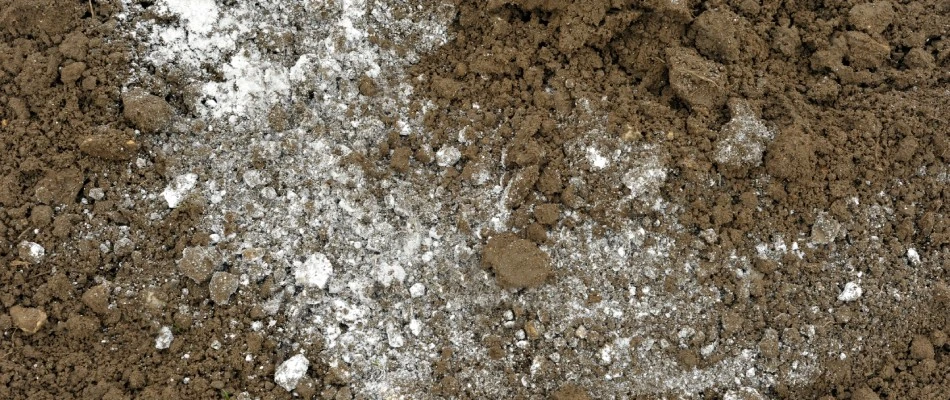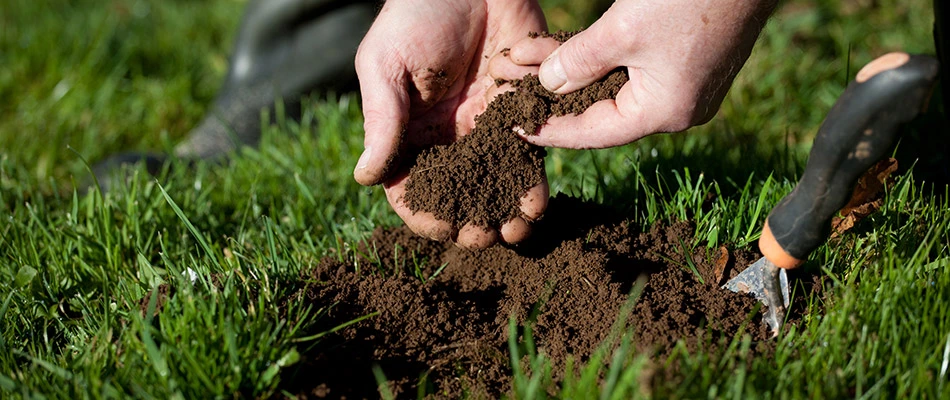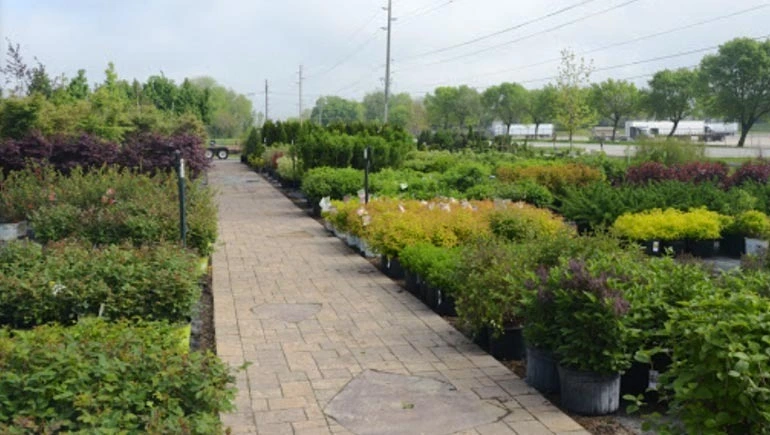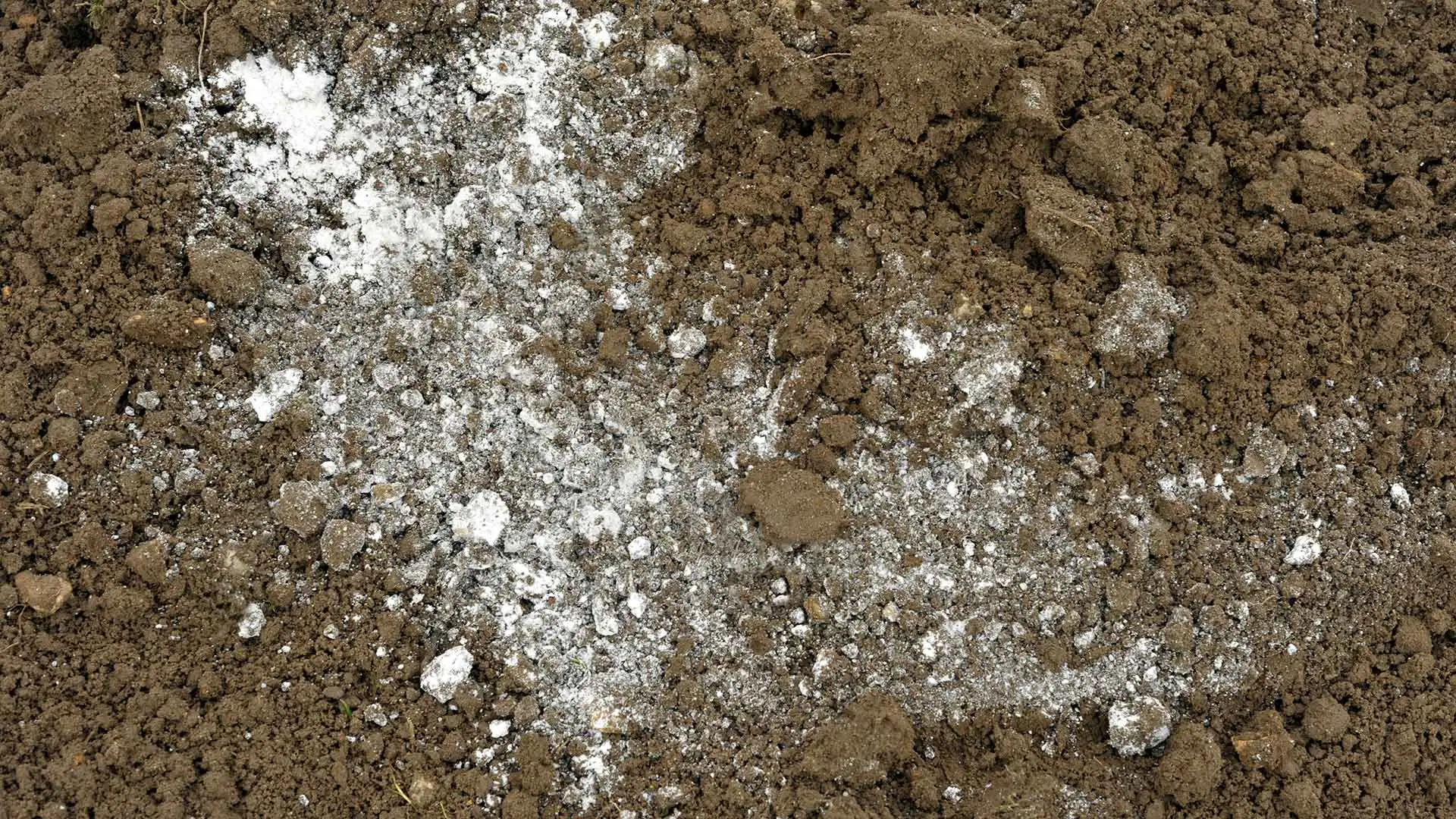It's a good idea to be aware of the pH level of your soil in order to cultivate a healthy lawn. When your soil has a low pH level, meaning it has higher levels of acidity, the growth of your lawn is hindered due to a lack of nutrients. However, there is a way to restore these pH levels in your soil, and that is by way of lime treatment. In short, lime makes soil less acidic, which will allow your plants to grow and flourish in healthy soil! One way to tell if your lawn is in need of a lime treatment is if your lawn is not responding to fertilizer. Another way to tell is if your lawn is extra sensitive to the drought conditions we experience here in Iowa. However, the best and most conclusive way to find out if your lawn needs a lime treatment is by scheduling a soil test.
If your grass is unresponsive to fertilizer, it is likely your lawn is in need of a lime treatment.

One of the more common indicators that your lawn may need a lime treatment is if you notice your grass is still not growing even after fertilizer treatment. Normally, the nutrients from the fertilizer can help accelerate the growth of your lawn, but if the pH levels in your soil are too low, then most grass will not grow no matter how much fertilizer you add. This is because many of the useful bacteria, such as rhizobia bacteria, do not survive in acidic soil. So, if you notice your grass isn't responding to fertilizer, then this could mean you may need to schedule a lime treatment.
Have you noticed your lawn is extra sensitive to drought conditions? It might be time for a lime treatment.
Another way you can tell if your lawn needs lime treatment is how it responds to drought. When a lawn goes dormant, you'll notice that it will start to change color, from a vibrant green to brown, and sometimes the grass will start to wilt. This is normal for grass, but lawns in healthy soil will tend to stay green longer and recover a lot faster from drought conditions because they are still surviving off the rich nutrients in the soil.
However, if you notice that your lawn is buckling under the stress of the drought much faster than your neighbors' lawns or that patches of your grass are falling dormant earlier than others, then this could be a sign that your soil may have low pH levels and could be in need of lime treatment. One reason your lawn is wilting faster than normal could be that the acidic soil is killing the nutrients reserved for droughts, which accelerates the dormant state in a drought. The bigger problem, however, is that acidic soil also makes recovery a lot more difficult unless the soil is treated. If you notice these symptoms in your lawn, it may be best to contact your lawn care provider for a lime treatment to help restore your lawn!
Conducting a soil test is the most conclusive way to find out if your lawn needs a lime treatment.

While the first two methods outlined above can be good indicators that your lawn is in need of a lime treatment, perhaps the most important way for you to tell is through a soil test. A soil test directly measures your soil's pH level and can tell you if a lime treatment is necessary. This has become the most reliable way used by industry professionals, and it is always recommended that you get a soil sample analysis completed by a professional for the most accurate results and to tell how much lime might be needed in order to balance the pH levels for a healthier lawn.
Your lawn care provider should always perform a soil test on your lawn prior to a lime treatment to determine if it is needed!
Call us today to schedule your lime treatment!
If you suspect your soil has a low pH level, we can help. Our team offers lime treatments for lawns located in the Des Moines, IA area, including West Des Moines and Ankeny. First, we'll conduct a soil test to find out exactly what your lawn needs to thrive. If necessary, we'll apply a lime treatment to regulate your lawn's pH level. Call us at (515) 289-2020 today to schedule a lime treatment!





Comments (0)
Thanks for your comment!
Thanks for your feedback! Your comments have been successfully submitted! Please note, all comments require admin approval prior to display.
Error submitting comment!
There is a problem with your comment, please see below and try again.